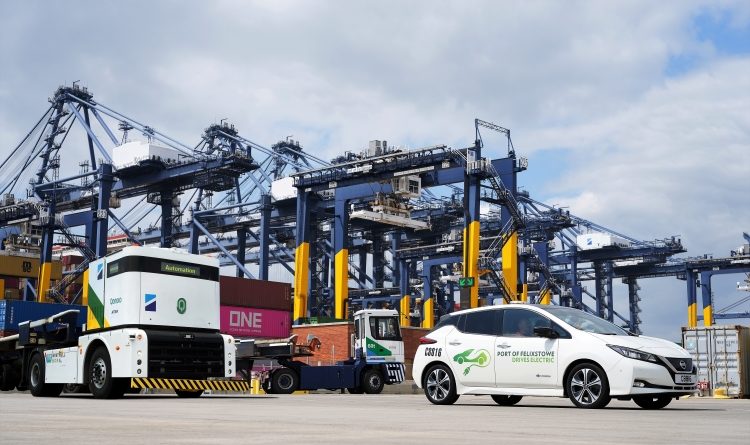Hutchison Ports embraces sustainability with net zero target
The leading global ports group has set a target for its three UK ports to achieve net zero by 2035
Hutchison Ports (Hutchinson) has set a goal to achieve net zero for Scope 1 and 2 emissions by 2035. The goal encompasses its three UK sites: the Port of Felixstowe, Harwich International, and London Thamesport.
It comes as part of the company’s ambitious science-based target to reduce emissions in every region. It is aiming to reach net zero globally by 2050.
Commenting on these targets, Clemence Cheng, Executive Director of Hutchison Ports and Managing Director of Hutchison Ports Europe, said: “Hutchison Ports operates in many markets throughout the world, and we have set both near-term and net-zero targets in line with the Science Based Targets initiative’s net-zero standard.“
Developments at the Port of Felixstowe
“Our journey has already begun,” he states. “We are investing in new and more sustainable equipment and the UK will be amongst the first of our business units to reach the target.”
The Port of Felixstowe is leading the way for Hutchinson’s sites. It signed a deal in April 2023 with a vision to tackle its emissions. The deal ensures that all the port’s electricity moving forwards is generated by solar, offshore wind, or other renewable sources.
Additionally, Felixstowe has introduced battery-powered autonomous trucks with the latest battery swapping technology. It commissioned two 11Kv high voltage substations in May 2023, which will enable charging for up to 20 vehicles.
It will take delivery of its next 22 electric-tractors in July 2023, with a further 24 vehicles arriving in November. In total, Hutchinson plans to acquire 150 electric-tractors at Felixstowe over the next two years.
Clemence Cheng commented: “Historically, there was no option but to use fossil fuels to power the majority of port equipment. We have made significant progress at the Port of Felixstowe, converting our yard cranes to electricity with 50 electric cranes in operation and another 17 on order for delivery this year.
“All new equipment across our three UK ports will be sustainable and we have a program to replace our entire vehicle fleet with battery-powered or alternative fuel options by 2033.”
